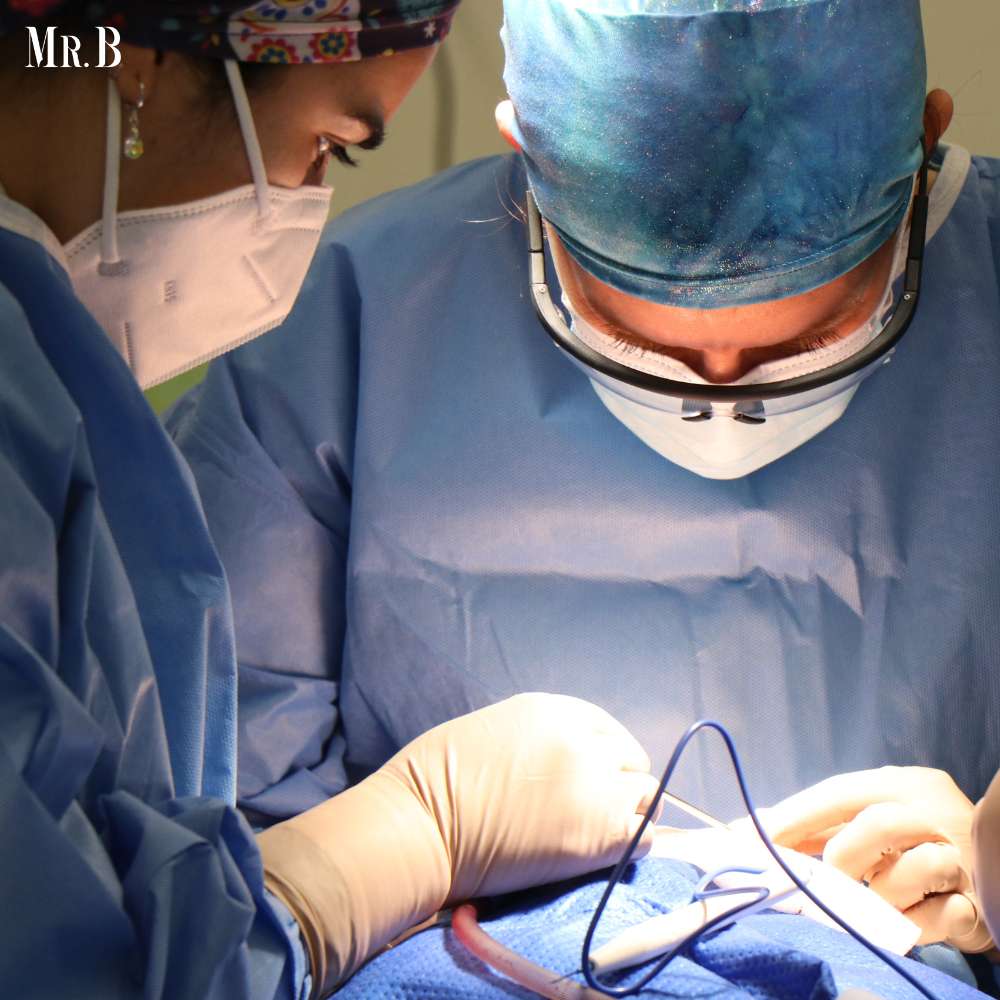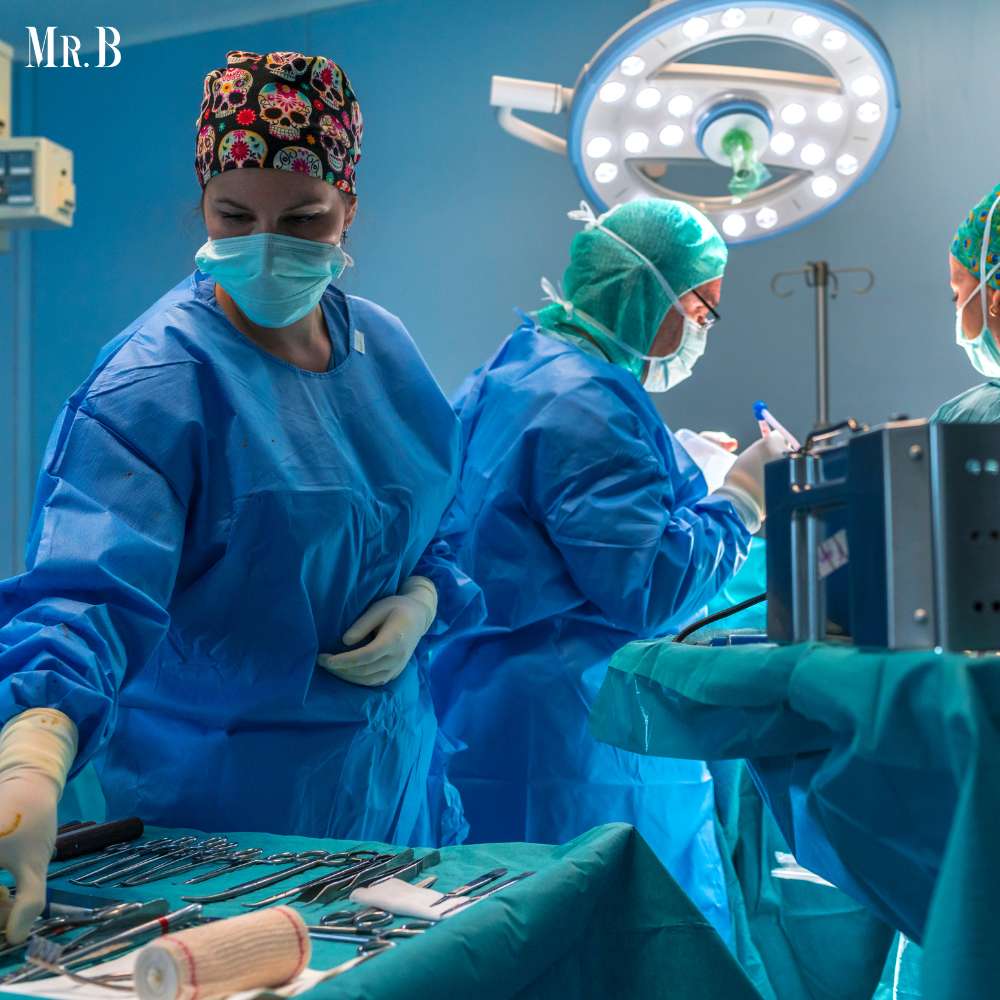A surgical technologist is an important part of an operative procedure. They assist medical staff with the operations of various types. They prepare the operating rooms, spaces and storage. They sterilize the equipment needed and make sure the supply of surgery is enough. The surgical technologist brings the patient inside the operation room and prepares them for the surgery by positioning them on an operating table. They cover the patient with sterile drapes too.
The preparation of preparing the patient also includes washing and disinfecting the sights of an incision. During operative procedures, they help surgeons to dress in sterile gowns and passing them instruments and other necessary equipments that are sterilized. These technicians might need a retractor or an internal organ in place while the procedure is on.
Roles and Responsibilities of a Surgical Technologist:
1. Preoperative Preparation:
A surgical technologist’s duties commence before the patient even enters the operating room. They are responsible for preparing the surgical suite, and ensuring all necessary instruments, equipment, and supplies are sterilized, organized, and readily available. This meticulous preparation sets the stage for a seamless surgical procedure.
2. Assisting During Surgery:
Once the surgery is underway, the surgical technologist becomes an essential member of the surgical team. They assist surgeons by passing instruments, sutures, and other necessary items. Their role requires a deep understanding of the procedure, enabling them to anticipate the surgeon’s needs and maintain a sterile field.

3. Instrumentation and Equipment Management:
Surgical technologists are adept at handling and organizing a vast array of surgical instruments. They are responsible for ensuring all instruments are in optimal condition, sterile, and ready for use. Proficiency in managing complex surgical equipment, such as robotic systems, is also a crucial aspect of their role.
4. Patient Care:
While surgical technologists do not provide direct patient care during surgery, they play a vital role in ensuring patient safety. This includes positioning the patient correctly on the operating table, securing them with appropriate restraints, and monitoring their well-being throughout the procedure.
5. Postoperative Duties:
The responsibilities of a surgical technologist extend beyond the surgery itself. They assist in the transfer of patients to post-anesthesia care units (PACUs) and participate in the process of cleaning and restocking the operating room for subsequent procedures.
The Need for a Surgical Technologist in the Operating Room
1. Ensuring Sterility and Infection Control:
One of the primary reasons surgical technologists are indispensable in the operating room is their role in maintaining a sterile environment. They meticulously prepare the surgical suite, sterilize instruments, and implement stringent infection control protocols. Without their expertise, the risk of surgical site infections and complications would significantly increase.
2. Facilitating Efficient Workflow:
Surgical procedures are highly complex, often involving multiple team members and a myriad of instruments and equipment. A surgical technologist acts as a coordinator, ensuring that the surgical team has everything they need at the right moment. This orchestration is crucial for the efficient flow of the surgery and contributes to optimal patient outcomes.

3. Enhancing Surgeon Focus:
Surgeons rely heavily on the support of surgical technologists to maintain focus during procedures. By anticipating the surgeon’s needs and seamlessly passing instruments, a surgical technologist allows the surgeon to concentrate on the intricate aspects of the surgery, ultimately enhancing the precision and success of the procedure.
4. Minimizing Risks and Complications:
The meticulous preparation and assistance provided by surgical technologists play a direct role in minimizing the risks and complications associated with surgical procedures. Their expertise contributes to a controlled and organized environment, reducing the likelihood of errors and ensuring patient safety.
5. Contributing to Positive Patient Outcomes:
Ultimately, the presence of a skilled surgical technologist significantly contributes to positive patient outcomes. Their attention to detail, proficiency in instrument management, and commitment to infection control all play pivotal roles in the success of surgical interventions.
Ramifications in the Absence of a Surgical Technologist
1. Disrupted Sterility and Infection Risk:
Without a surgical technologist overseeing the maintenance of a sterile environment, the risk of infections in the operating room would escalate. Contaminated instruments, improperly sterilized equipment, and lapses in infection control measures could lead to severe consequences for patients.
2. Procedural Delays and Inefficiencies:
The absence of a surgical technologist would disrupt the careful orchestration of surgical procedures. Surgeons would face delays in obtaining necessary instruments, leading to inefficiencies and potentially compromising the success of the surgery.
3. Increased Surgeon Stress and Distraction:
Surgeons would bear the brunt of additional responsibilities in the absence of a surgical technologist. The stress and distraction from managing instruments, equipment, and the overall organization of the operating room could detrimentally impact the surgeon’s performance and focus.
4. Compromised Patient Safety:
Patient safety would be compromised without the meticulous assistance and vigilance of a surgical technologist. From incorrect positioning on the operating table to delays in responding to critical situations, the absence of this crucial team member could lead to a cascade of safety issues.

5. Negative Impact on Surgical Outcomes:
The cumulative effect of disrupted sterility, procedural delays, increased stress on surgeons, and compromised patient safety would inevitably result in a negative impact on surgical outcomes. The absence of a surgical technologist could contribute to a higher incidence of complications and adverse events.
Conclusion:
The role of a surgical technologist in the operating room is nothing short of indispensable. Their multifaceted responsibilities, from meticulous preparation to seamless assistance during surgery, contribute significantly to the success of surgical procedures. The need for a surgical technologist is rooted in their ability to ensure sterility, facilitate efficient workflows, enhance surgeon focus, minimize risks, and ultimately contribute to positive patient outcomes. The potential ramifications in their absence underscore the critical nature of their role in maintaining precision, organization, and safety in the complex and demanding environment of the operating room.







